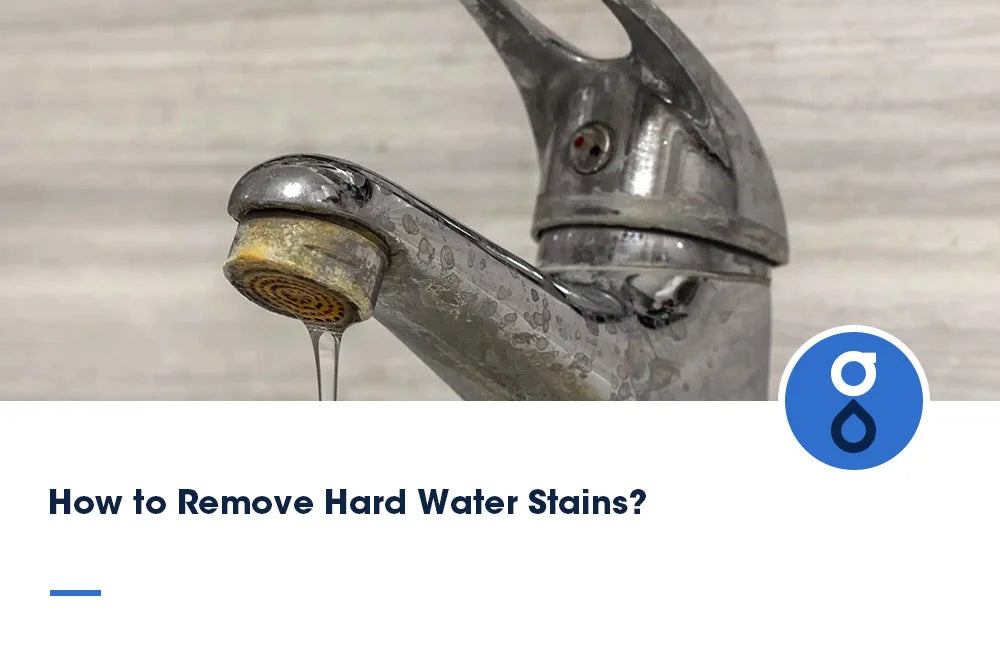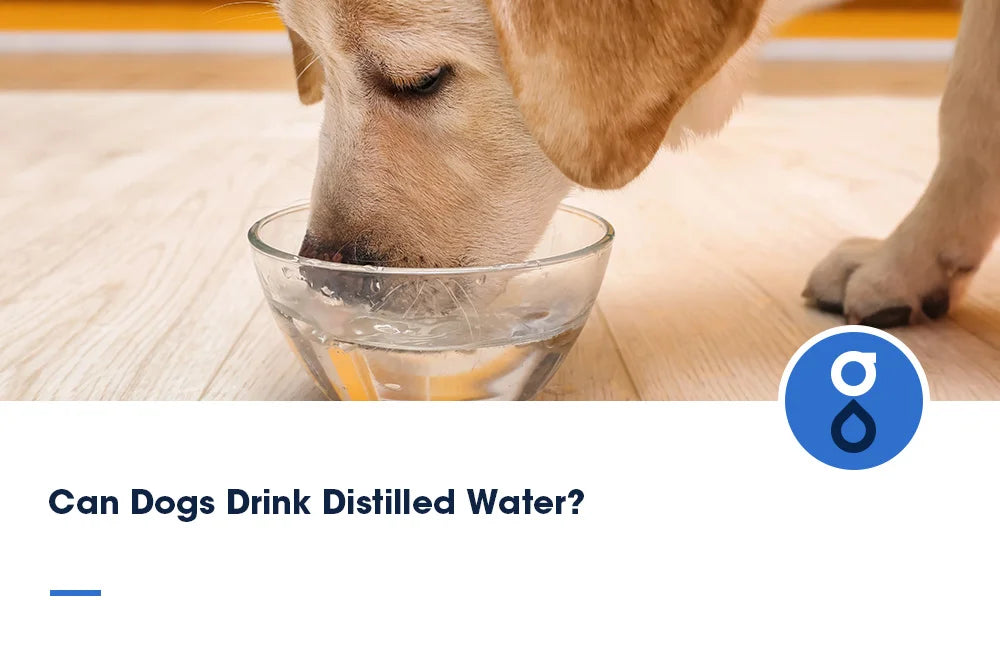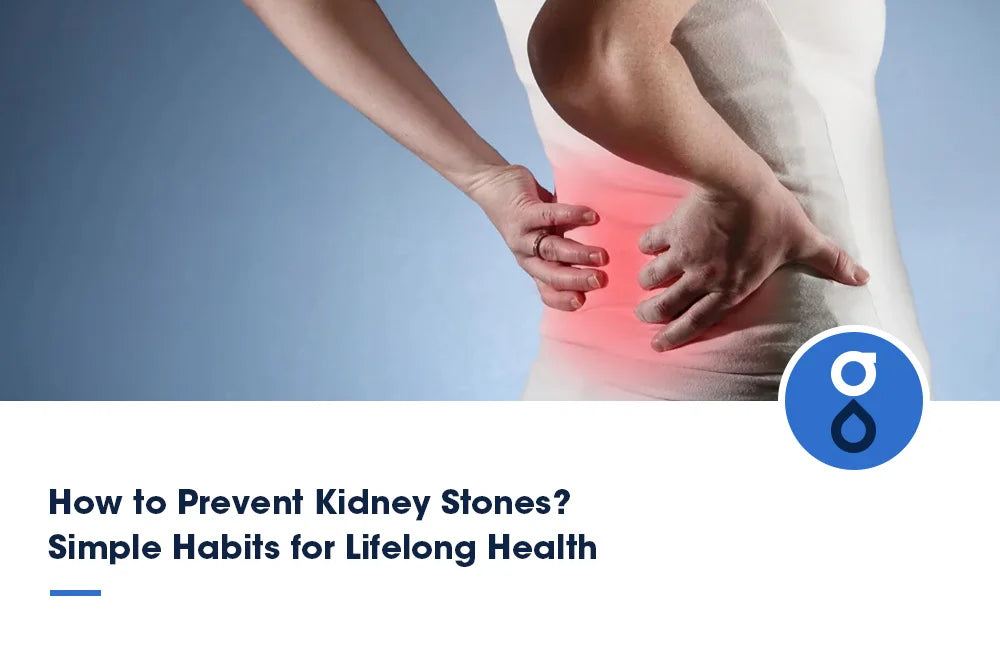Table of Contents:
Why Is Removing Hard Water Stains So Important?
Common Causes of Hard Water Stains
How to Remove Hard Water Stains?
How to Prevent Hard Water Stains
FAQs
Conclusion
One of the most stubborn and annoying household problems is the hard water stains. Regardless of whether they appear on your faucets, glassware, shower doors, or countertops, these chalky white spots can give your clean home an aged, unappealing look. Even worse, they may lead to very long-lasting damage when left untreated for time.
In this article, we will not only give you a step-by-step explanation of how to remove hard water stains, their different causes, and the dangers they may cause, but also the most effective ways of avoiding them, both in terms of cleaning agents and in terms of modern filtration systems. Many homeowners also wonder: Is it safe to use a reverse osmosis system for drinking well water? Or even, is reverse osmosis (RO) water safe and healthy to drink? We’ll touch on these important questions as well, since water quality is closely linked to hard water problems.
Why Is Removing Hard Water Stains So Important?

Hard water stains are not only ugly to look at, but also have the potential to permanently damage the surfaces and appliances of your home in case they are not taken care of on time. These stains tend to build up as they go, leaving behind a long-lasting, chalky film that is hard to remove with ordinary cleaning. In addition to making fixtures less efficient, hard water stains can also reduce the lifespan of plumbing appliances such as dishwashers and water heaters, and even affect the health of your skin and hair.
Knowing the nature of these stains is also vital in understanding how to remove them. It is necessary to understand what exactly hard water stains are. This information will assist you in avoiding build-up in the future and ensure your living surroundings are cleaner and healthier.
What Are Hard Water Stains?
Hard water stains or mineral deposits, or limescale, form when water with higher mineral levels, which are mainly calcium and magnesium, evaporate, leaving a remnant. These deposits stick to any water-exposed surface, but particularly on glass, tile, and metal.
Among the typical locations where you will find the hard water stain are:
-
Bathroom tiles and tubs
-
Shower doors
-
Sinks and faucets
-
Dishes and glassware
-
Kitchen appliances
With time, these stains are more difficult to clean and harmful to your house.
The Current State of U.S. Water Quality

The U.S. Geological Survey estimates that more than 85 percent of households in the USA have hard water. This is because water passes through limestone and chalk deposits in the earth, which are naturally enriched with calcium and magnesium.
Although hard water is not generally dangerous to consume, it is, in fact, a real issue for the homeowner:
-
Higher levels of inefficiency in appliances.
-
Mineral buildup in plumbing
-
Grease and dirt on the surface of the bathroom/kitchen.
-
More maintenance and cleaning work.
Risks That May Occur with Hard Water Stains
Unattended, the hard water stains may cause:
-
Glasses and tiles that are permanently etched.
-
Limited flow of water since the mineral deposits block the water pipes.
-
Corroded plumbing fixtures
-
Skin is dry, scratchy, and hair is splitting after exposure to water heavy in minerals.
-
Increased payments on inefficient water heaters and dishwashers.
That is why it is needed to understand how to get rid of hard water stains and avoid them to make the places of living clean, safe, and efficient.
Common Causes of Hard Water Stains
The main reason hard water leaves stains when it does is based, naturally, on hard water itself. But some domestic manners may hasten the appearance of the stains:
-
Wiping surfaces with hard water.
-
Forced evaporation (for example, hot water used in showers).
-
Homes have hard water without water softeners or filters.
-
Not cleaning up regularly.
The way of dealing with these root causes would ensure that you have to clean or repair affected areas on many fewer occasions.
How to Remove Hard Water Stains?

The following are some of the proven tips that you can apply right in your home:
White Vinegar and Baking Soda
Prepare a paste of baking soda and vinegar. Apply it to the stains and leave it to sit for 15-30 minutes, and then scrub it with a non-abrasive sponge.
Lemon Juice
Lemon juice is acidic; thus, it dissolves the mineral deposits. Take a slice of lemon and rub it over the part of the surface that is affected, and place it there and then wet it with some warm water.
Store-Bought Hard Water Cleaners
Apply a water remover that is not toxic and is meant to be used on a particular surface (glass, metal, tile). Never disregard safety instructions.
Steam Cleaning
Without chemicals, steam will take off stubborn gunk in places such as grout or tile.
How to Prevent Hard Water Stains
It is good to know how to erase hard water stains and when it is better to avoid them. Here’s how:
Wipe Countertop Surfaces After Use
Wipe surfaces with a towel (soft cloth, microfiber) not long after using the sink or working with water. This is just a basic habit that ensures that no stains develop.
Install a Water Softener or Filter
Treating the water source is the most viable, long-term, and effective way of preventing the occurrence of hard water stains. Water filter and softening systems can be used to do this.
We stand up the next systems at GlacierFresh:
GlacierFresh Under-Sink Reverse Osmosis System (U03)
GlacierFresh Under-Sink Reverse Osmosis System: An under-sink, compact, energy-saving reverse osmosis unit is well programmed to serve families needing clean, pure water to drink and cook.
What it does:
Eliminates 99.99 percent of any contaminant, such as calcium, magnesium, fluoride, chlorine, and PFAS, which are the primary causes of hard water stains and health issues.
Brief Features:
-
Ultra-clean water filtration: 5-stage RO.
-
Tool-free and tankless: can fit under your sink.
-
800 GPD flow rate: fills a glass in 5 seconds only.
-
Pure-to-waste ratio of 3:1: green and economical.
-
NSF/ANSI certified - safety/performance tested.
Why it's essential:
Stops the formation of scales and cleans the water so that you can drink, cook, and even prolong the life of your appliances.
GlacierFresh Portable RV Water Softener
This is a smaller water softener, which is suitable in an RV, or where renting is required, or where the water hardness problem is to be addressed on the go, without the need to keep it rooted to a particular location.
What it does:
Removes the calcium and magnesium in hard water and prevents hard water stains, protects appliances as well, and improves bathing or washing conditions.
Brief Features:
-
Tool-free installation: finished in a few minutes.
-
Small & lightweight: storage and transportation friendly.
-
Increases the life of plumbing, faucets, and fixtures.
-
Fits perfectly in showers and sinks, no more white spots or rust.
Why it's essential:
Excellent for blocking hard water stains on the road or at temporary lodging places. Makes for the RV owner or camper.
Apply Protective Coatings
Treat your glass and metal surfaces with waterproof finishes (e.g., Rain-X or clear protection). These products form a barrier that will not allow water to cling to the product and leave a residue behind.
FAQs
Q1: Are hard water stains permanent?
When left untreated over a long period, they can etch the surface, making them permanent. When regularly cleaned with water softeners, this is prevented.
Q2: Can I use vinegar on all surfaces?
Do not put vinegar on natural stone or granite. Apply pH-neutral cleaners to them. Vinegar can erode the finish and cause dull spots or permanent damage.
Q3: Is hard water harmful to health?
Not instantly, but with time of exposure, skin and hair are desiccated. It also adds wear and tear to the appliances.
Q4: Should I use a filter or a softener?
The best option is to use both a filter for drinking and cooking water (like the GlacierFresh Under-Sink RO) and a softener for the whole house or RV supply.
Conclusion
Knowing how to remove hard water stains is essential to maintaining your house clean and your water safe. However, prevention is most important. The GlacierFresh Under-Sink RO System and the GlacierFresh Portable RV Water Softener are tools that allow you to remove stains. These products make you enjoy your overall experience with water.
Don’t let mineral deposits ruin the quality of your fixtures, dishes, or comfort. Choose healthier water today for a cleaner and greener tomorrow.


















